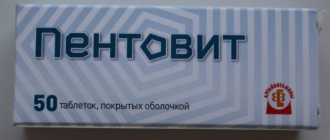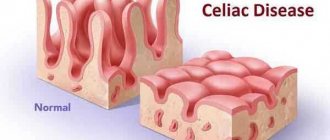Skin xerosis is an abnormal dryness of the upper layer of the skin caused by changes in the hydrolipid balance of the skin. It manifests itself as a dry, rough structure of the surface of the skin. The skin becomes cracked, inflamed, and infected. With the disease, the entire spectrum of pathological skin changes is observed: disturbances in sebum secretion, sweating, skin lipids, amino acid deficiency, and a feeling of discomfort. The condition is constantly accompanied by itching, which reduces the patient’s quality of life.
Causes
The main mechanisms for the development of dryness and flaking of the skin are a violation of its acid-base balance, poor functioning of the sebaceous glands, too frequent renewal of the upper layer of the epidermis and moisture deficiency in the epithelium.
The reasons may be: external influences, various diseases - both dermatological and general, and the general condition of the body. Of the external factors that have an adverse effect on the skin and cause dry skin, the most significant are the following:
- exposure to aggressive substances;
- chapping, hypothermia or overheating of the skin (for example, a sauna);
- improper skin care;
- exposure to ultraviolet radiation, especially in combination with weathering, or prolonged contact with an alkaline environment (for example, staying on the beach by the sea);
- regular exposure to hot or extremely cold water, especially chlorinated water.
Dry and flaky skin can be symptoms of the following diseases: allergic reaction; acquired, hereditary or congenital skin diseases, including psoriasis, seborrhea, eczema, atopic dermatitis, ichthyosis; diseases of bacterial, viral, inflammatory, hereditary and other etiologies. Dry and flaky skin may indicate the presence of: endocrine diseases (hyper- or hypofunction of the thyroid gland or adrenal glands, diabetes mellitus); problems with the digestive tract (gastritis, duodenitis, cholecystitis); metabolic disorders; some neurological ailments (migraine, autonomic-vascular dysfunction, neuralgia, neuroses, depression); damage to the endocrine system and other diseases requiring treatment. The most common cause of the development of xerosis is poor nutrition and, as a result, a lack of minerals and vitamins in the body. Spring peeling of the skin, often mistaken for an allergy, is in fact most often a manifestation of a lack of vitamins in the body. It is dull, dry and flaky skin that in most cases is the first symptom of vitamin deficiency A, E, B1 and C. Interestingly, a deficiency of vitamin B6 manifests itself on the contrary, with oily skin prone to acne formation. Dry hand skin may indicate a lack of vitamins A, E, B7 and D. Dry and flaky skin can also be caused by a lack of minerals (zinc, magnesium) and Omega 3 (polyunsaturated fatty acids).
Problematic skin and vitamin deficiency
Problematic skin often results in numerous rashes.
Acne
is a skin disease in which various irregularities form on the surface of the skin. These bumps include: whiteheads, blackheads and pimples.
Acne occurs when skin pores become clogged with dead skin and oil. Acne most often occurs in older children and teenagers during puberty, when hormones cause the body's sebaceous glands to produce more oil.
Several studies show that following a healthy diet can help prevent and treat acne. Specifically, foods rich in the following nutrients are associated with lower rates of acne: complex carbohydrates, zinc, vitamins A and E, omega-3 fatty acids, antioxidants.
Pimples go away slowly without treatment, but sometimes, as some of them begin to disappear, new ones appear. Severe cases of acne are rarely dangerous, but can cause emotional distress and lead to scarring of the skin.
How does diet affect skin?
Some foods raise your blood sugar faster than others.
When blood sugar levels rise quickly, the body produces a hormone called insulin. Excess insulin in the blood can cause the sebaceous glands to produce more oil, increasing the risk of acne.
Some foods that cause insulin spikes include
:
- pasta;
- White rice;
- White bread;
- sugar.
Because of their insulin-producing action, these foods are considered high-glycemic carbohydrates. This means they are made from simple sugars.
Chocolate is also believed to aggravate acne.
https://www.ncbi.nlm.nih.gov/pmc/articles/PMC4025515/
Other researchers have studied the connection between the so-called "Western diet" or "standard American diet" and acne. This type of diet is largely based on:
- carbohydrates with a high glycemic index;
- dairy products;
- saturated fats;
- trans fats.
These types of foods stimulate the production of hormones that can cause the formation and secretion of sebaceous glands.
They also found that a Western diet is associated with increased inflammation, which may also contribute to acne problems.
What products help your skin?
Eating low-glycemic index foods that contain complex carbohydrates may reduce your risk of developing acne. Complex carbohydrates are found in the following foods
:
- whole grain;
- legumes;
- unprocessed fruits and vegetables.
Products containing the following ingredients are also believed to be beneficial for the skin as they reduce inflammation:
- zinc;
- vitamin A and E;
- antioxidants.
We recommend
“Nutrition for edema: diagnostics of the body and preparation of the correct diet” Read more
Some antioxidant skin products include
:
- yellow and orange fruits and vegetables such as carrots, apricots and sweet potatoes;
- spinach and other dark green leafy vegetables;
- tomatoes;
- blueberry;
- whole wheat bread;
- brown rice;
- turkey;
- pumpkin seeds;
- beans, peas and lentils;
- salmon, mackerel and other types of fatty fish;
- nuts.
Everyone's body is different, and some people get more acne when they eat certain foods. Under your doctor's supervision, it may be helpful to experiment with your diet to see what works best for you.
Always take any food allergies or sensitivities into account when planning your diet.
Several recent studies suggest that following a low glycemic index diet or a diet low in simple sugars can prevent and reduce acne. Researchers in one study of Korean patients found that after 10 weeks of low glycemic load, it could lead to significant improvements in acne.
In another study published in the Journal of the American Academy of Dermatology, researchers found that following a low-glycemic, high-protein diet for 12 weeks improved acne in men and also led to weight loss.
Study
: The effect of a high-protein, low glycemic-load diet versus a conventional, high glycemic-load diet on biochemical parameters associated with acne vulgaris: a randomized, investigator-masked, controlled trial
Zinc
Research also shows that eating foods rich in zinc may be beneficial in preventing and treating acne. Zinc-rich foods include:
- pumpkin seeds;
- cashew nuts;
- beef;
- turkey;
- lentils;
- seafood such as oysters and crabs.
In one study published in the International Journal of BioMed Research, researchers examined the relationship between blood zinc levels and acne severity. Zinc is a dietary mineral important for skin development and for regulating metabolism and hormone levels.
Study
: Correlation between the Severity and Type of Acne Lesions with Serum Zinc Levels in Patients with Acne Vulgaris
Researchers have found that low zinc levels are associated with more severe cases of acne. They suggest increasing the amount of zinc in the diet to 40 mg of zinc per day to treat people with severe cases of acne. Research shows that the same amount of zinc occurs even in people without acne
Vitamins A and E
In a study published in the Journal of Skin and Ocular Toxicology, researchers found that low levels of vitamins A and E were also associated with severe cases of acne.
Study
: Evaluation of serum vitamins A and E and zinc levels according to the severity of acne vulgaris
They suggest that people with acne can reduce the severity of acne by increasing their intake of foods containing these vitamins. Check with your doctor before taking vitamin A supplements. Vitamin A toxicity can cause permanent harm to your major organs.
Antioxidants and Omega-3 Fatty Acids
Omega-3
is a type of fat found in some plants and animal protein sources such as fish and eggs.
Antioxidants are chemicals that neutralize harmful toxins in the body. Together, omega-3s and antioxidants are thought to reduce inflammation.
Research largely supports the link between increasing your intake of omega-3s and antioxidants and reducing acne.
We recommend
“Eating disorder: types, symptoms, treatment” Read more
A study published in Lipids in Health and Disease found that people who took daily omega-3 and antioxidant supplements were able to reduce their acne and improve their mental health.
Since acne often causes emotional distress, consuming omega-3s and antioxidants can be very beneficial for people with this condition.
Some research suggests that certain foods can help clear up acne and improve skin health, but there is no definitive nutritional “cure.”
The best dietary advice for dealing with acne is to eat a healthy, balanced diet rich in fresh fruits and vegetables, healthy sources of protein, and whole grains.
Symptoms
Most often, dry skin is a temporary problem that only bothers you during a certain season, but it can last a lifetime. Symptoms of xerosis depend on your general health, age, where you live, and how much time you spend outdoors. Possible symptoms include:
- Feeling of tightness of the skin, especially after a bath.
- The skin is wrinkled and dehydrated.
- The skin looks rough instead of smooth.
- The itching is disturbing, sometimes very intense.
- Peeling of the skin - from slight to severe.
- Cracks in the skin, sometimes bleeding and painful.
- Redness of the skin, usually in limited areas.
Signs of dermatitis
With dermatitis, symptoms develop gradually. At each stage, symptoms appear with different intensities and persist for different times. Dermatitis goes through the following stages:
- Severe itching
- The appearance of redness
- Development of swelling,
- Bubble formation
- The process of bursting bubbles
- Formation of weeping ulcerative lesions,
- Drying, formation of crusts, cracks,
- The appearance of blue-pink spots and scar formation.
With the allergic form of dermatitis, the last stage does not develop.
Treatment
Methods for moisturizing the skin are different and are largely determined by eliminating the source - the catalyst of the problem. If the cause is a specific disease, then treatment of dry skin of the body includes all the necessary measures that can stop the pathology, and hence remove its accompanying symptoms.
If the reason is different, then it is necessary to take measures to protect the skin from the negative influence of external irritants, which can be eliminated independently. It is necessary to keep the skin clean, but you should not overdo it with the amount of washing and taking baths and showers. Cosmetics for washing must be of high quality and match your skin type. You should use only high-quality, non-expired cosmetics. In winter, it is necessary to use protective creams. In everyday life, prefer clothes and shoes made from natural materials. This will protect against the occurrence of allergic reactions to artificial material and protect against thermal overheating of the skin. Anti-inflammatory agents must be used along with moisturizers. It is recommended to use anti-allergy medications or general health-improving medications internally, which will be prescribed by your dermatologist.
What's the best way to take vitamins?
Food
- the best source of vitamins necessary for hair growth. However, if you don't get enough in your diet, supplements may be helpful.
Research shows that supplements work best in people who are already deficient.
Study
: Effect of ultraviolet radiation, smoking and nutrition on hair
Additionally, large doses of vitamins and minerals can be harmful if you don't have them. Therefore, consult a specialist to determine whether you have a deficiency or not.
Ultimately, the best way to get these nutrients is to eat a balanced, real food-based diet that includes plenty of nutrient-dense foods.
You can choose a course in the form of tablets or buy liquid vitamins in ampoules: they are added to shampoos and masks.
Please note that it is better not to combine substances if you do not know what the effect will be. For example, if you combine ascorbic acid, B1, B6 and B12 together, the effect of the last two will be neutralized.
There are other nuances of digestibility: for example, vitamin A is better used as part of oil masks (olive or burdock), since it dissolves with fat.
Any external means give effect as a result of systematic use. It is best to start with one vitamin to strengthen your hair, and then take a course of others designed to moisturize and accelerate growth.
Hair and skin are made of protein. In order for them to be healthy, it is necessary, first of all, to structure their diet so that the amount of building material is acceptable. It’s easy to calculate: for 1 kg of weight per day you need to consume 1.5 grams of pure protein. In addition, we must not forget about vitamins D and C, as they ensure the construction of collagen, and also monitor the level of iron in the blood. There is no need to consume collagen separately. In fact, it is an ordinary protein that is useless if you follow dietary standards.
Together, these components cover most of the problems that arise for modern girls living in big cities. However, such a vitamin complex may not be enough if a person has internal problems with vital organs.
We recommend
“Proper nutrition for health and a slim figure: menu for the week” Read more
Essential oils can significantly improve hair health.
Essential oils have been proven to be as effective as regular hair care products. They are also much safer and have far fewer side effects. Besides hair, essential oils also have many other beneficial effects. For example, they help fight skin infections.
- Lavender Essential Oil – Helps increase the number and strength of hair follicles
- Rosemary oil - promotes hair thickening and growth
- Chamomile essential oil - helps increase shine and softness of hair
- Cedarwood essential oil – enhances circulation in the scalp area
- Clary sage oil - helps with hair loss caused by stress
- Lemongrass essential oil - soothes irritated scalp
- Peppermint essential oil - stimulates the scalp and helps get rid of dandruff.
The main benefit of essential oils is that they are much safer than traditional hair care products.
Conventional hair care products often contain large amounts of nasty chemicals. These chemicals can be effective when used correctly on hair, but many of them also cause skin irritation, among other problems.
Thus, a diet that provides insufficient intake of vitamins and minerals can cause skin and hair problems. More often than not, increasing your intake of foods rich in appropriate vitamins and minerals can help resolve or significantly reduce your symptoms.
Proper care for flaky skin
In cases where skin peeling is caused by external influences, proper care of the affected epidermis will help to cope with the problem. This will not harm even in case of more serious internal disorders, but in conjunction with the treatment prescribed by the doctor. Taking care of your skin will also be an excellent preventive measure. The following procedures will help restore skin smoothness:
- refusal of alcohol-containing cosmetics, which may clean and disinfect the epidermis, but also dry it out quite strongly, which easily provokes peeling;
- replacing alkaline soap with special products based on natural cleansing and necessarily moisturizing components, provided that they do not contain individual allergens;
- collecting excess moisture after washing with a soft cloth instead of a towel, so as not to further injure the skin;
- using a moisturizer selected by a cosmetologist every time after showering or washing your face;
- protecting your skin from sunburn using special products;
- humidifying the air in a warm room using special devices or an ordinary damp towel placed on the radiator.
Moisturizing or nourishing cream should be used at least half an hour before going outside.
Film-forming humecants
Film-forming humecants include glycerin, fats, waxes and mineral oils. They form a protective film on the surface of the skin and thus prevent excessive evaporation of moisture. Glycerin can be called the strongest of the film-forming humecants, but it not only retains moisture well, but also stimulates the process of creating young skin cells. A large number of new cells maintains water balance in all layers of human skin.
Also, hexahydric alcohol sorbitol has special properties, which not only perfectly moisturizes the skin, but also forms a film that prevents moisture evaporation.
Another popular remedy for combating dry skin is linoleic acid, which, in addition to creating a waterproof film, regulates the permeability of the epidermis.
If you notice symptoms of dry body skin, consult a dermatologist, because this disease may be caused by more complex and dangerous diseases.
Signs of dry facial skin
One of the main indicators of dry skin is the absence of oily shine. Try going without makeup or skincare products for a few hours, and then pat your skin dry with a tissue. If there is no oily shine, most likely you have a dry type. There are other signs that point to it:
- feeling of tightness,
- high sensitivity,
- severe dryness in winter,
- invisible pores
- no rashes, pimples,
- frequent peeling
- early signs of aging (wrinkles).
Medicines for peeling skin
If ordinary creams and natural moisturizers do not help, medications based on dexapanthenol can help cope with peeling on the face, hands, elbows and other parts. These include “Bipanten”, “Panthenol” and others, which have a moisturizing and healing effect. Such products are especially helpful for peeling caused by excessive exposure to the sun or strong cold wind.
Before using any remedy, it is still necessary to consult a dermatologist, since methods for eliminating peeling depend solely on the cause of its occurrence.
The medicinal drug “Radevit” is also effective, which perfectly softens, moisturizes and has anti-inflammatory properties due to its high content of vitamins A and E.








